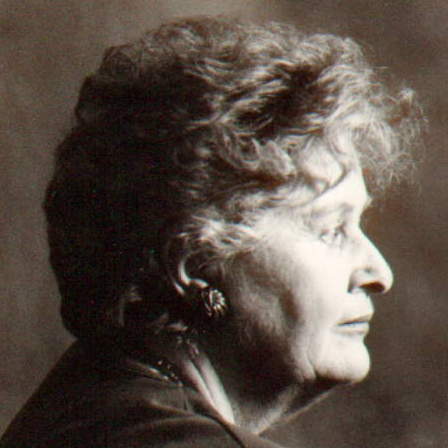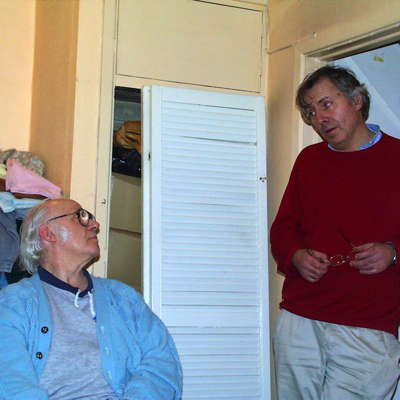- Rigoletto
- Clotilde Rosa
- Francesco Cilea: Adriana Lecouvreur
- Sarah Frances Beamish
- Manchester
- Amber Lin
- Handel: The King Shall Rejoice
- Olomouc
 SPONSORED: An Integral Part - Lindsey Wallis looks forward to the Canadian Music Centre's tribute concert to composer Roberta Stephen.
SPONSORED: An Integral Part - Lindsey Wallis looks forward to the Canadian Music Centre's tribute concert to composer Roberta Stephen.
All sponsored features >>
 25 YEARS: Classical Music Daily celebrates twenty-five years of daily publication with an hour-long video featuring some of our regular contributors.
25 YEARS: Classical Music Daily celebrates twenty-five years of daily publication with an hour-long video featuring some of our regular contributors.

Exceptional Performances
GERALD FENECH unreservedly recommends Jean-Efflam Bavouzet's recordings of Wolfgang Amadeus Mozart's Piano Concertos Nos 26 and 27
'This is superb music making from the first to the last note.'
It can be said that during the last decade of his life, while he was residing in Vienna (1781-91), the piano concerto was to Mozart what the piano sonata was to Beethoven. Indeed, Mozart reached consummate mastery of the piano concerto in less than five years and, between 1782 and 1786, he composed fifteen such works.
Piano Concerto No 26 in D, K 537, was written in February 1788 without any nickname. The label 'Coronation' is attributed to the fact that Mozart performed this work when Leopold II was crowned Holy Roman Emperor at Frankfurt in October 1790. Having been sidelined for participation in the official ceremonies, Mozart, at his own expense, directed a concert on 15 October at which he performed this concerto.
The 'Coronation' concerto differs from its predecessors in that it depends less on the harmonic tensions within the separate movements - 1: Allegro, 2: Larghetto 3: Allegretto - to define structure and more on melodic succession to accomplish the task. That this concerto was regarded as anticipating the concerns of future romantic composers is evident in that it was the most popular of all Mozart's concertos during the nineteenth century.
Listen — Mozart: Allegretto (Piano Concerto No 26)
(CHAN 20246 track 6, 0:00-0:50) ℗ 2023 Chandos Records Ltd :
The Piano Concerto No 27 in B, K 595, is Mozart's last piano concerto. It was first performed early in 1791, the year of his death. The manuscript is dated 5 January 1791, however, Alan Tyson's analysis of the paper on which Mozart composed this work indicated that the composer used this paper between December 1788 and February 1789, which implies that composition materialized well before 1791. This fact is still debatable and, so far, a definite assertion has not been reached. Meanwhile the discussion rages on.
In all probability, this concerto may have been first performed at a concert on 4 March 1791 in John's Hall by Mozart himself and the clarinettist Joseph Beer. If so, this was the composer's last appearance in a public concert, as he fell ill in September 1791 and died on 5 December of that same year.
Although all three movements - 1: Allegro, 2: Larghetto and 3: Allegro - are in a major key, minor keys are suggested, as is evident from the second theme of the first movement as well as the presence of a remote minor key in the early development of that movement, and of the tonic minor in the middle of the Larghetto.
Listen — Mozart: Larghetto (Piano Concerto No 27)
(CHAN 20246 track 2, 3:51-4:46) ℗ 2023 Chandos Records Ltd :
Another interesting characteristic of the work is its rather strong thematic integration of the movements, which would become even more important in the nineteenth century. The cadenzas for this concerto are by Mozart himself.
This Chandos Mozart series has been going from strength to strength but this Volume 8 raises the bar even further. Indeed, these are exceptional performances of Mozart's last two piano concertos, and the fastidious attention to line and phrasing is complemented by a clarity and grace that reveal all the remarkable inventiveness of Mozart's writing. Soloist Jean-Efflam Bavouzet, conductor Gábor Takács-Nagy and the Manchester Camerata cannot be praised too highly for an absolutely stunning album that is further embellished by some sparkling renditions of three of Mozart's operatic overtures: La Clemenza di Tito, Così fan tutte and The Magic Flute.
Listen — Mozart: The Magic Flute Overture
(CHAN 20246 track 2, 5:31-6:23) ℗ 2023 Chandos Records Ltd :
This is superb music making from the first to the last note. Sound and annotations are first rate. Unreservedly recommended.
Copyright © 17 September 2023
Gerald Fenech,
Gzira, Malta



